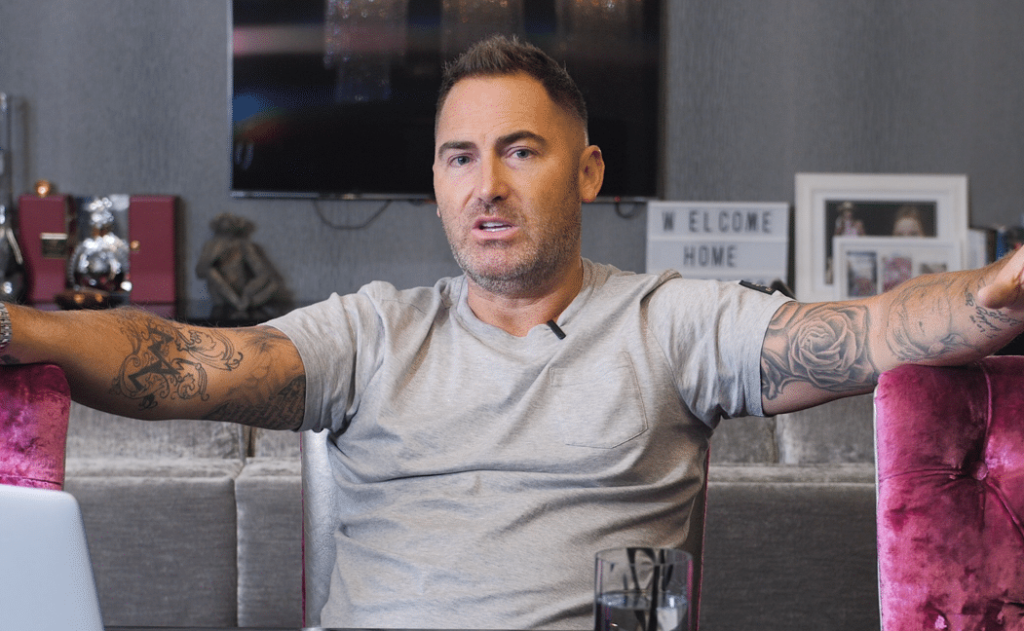 It’s been a tough few weeks in our luxury fashion group. Crystallising losses, staff layoffs and uncomfortable conversations.
It’s been a tough few weeks in our luxury fashion group. Crystallising losses, staff layoffs and uncomfortable conversations.
The good news is that we are through the bulk of the pain now and it should only be ‘up’ from here. We have consolidated a couple of our brand fascias and closed down a division – but the outcome of this is that we have a better, more efficient, profitable, more stable business that is very capable of producing a 7 figure profit over the next 12 months. We have secured the future of the remaining staff members and will ultimately deliver strong returns to investors.
But these positive changes are happening later than they should have done. Fortunately not too late, but definitely much later than they should have.
Why? Well like anything that happens in any of my businesses, it was my fault! I could have dealt with this at any point. But for various reasons, I chose not to. I ignored the warning signs. I denied common sense. I broke my own rules.
As the CEO or owner of a business, you are responsible for everything that happens. Every decision taken, every mistake made, comes off the back of a plan that you put in place or a member of staff that you employed or allowed to remain in place. Passing the book is not permitted! (And it achieves nothing anyway).
So for anyone reading this thinking, it is me slagging off other people – it couldn’t be any further from the truth. People working closely in this business will have heard me say multiple times, ‘It’s my fault for allowing it to go on. I could have changed this at any point.’
So today’s lessons are more a case of ‘do as I say, not as I do’! Because you need to learn from this by doing the opposite of what I did!!
So which of my rules did I break and what can you learn? I came up with 9 without having to think too hard.
Rule #1 – A Business Is Only A Business If It Makes Money
I had a few notes written down to write this column with and I have struggled to put the ‘rules’ in an order. But I think this one should be first. A BUSINESS IS ONLY A BUSINESS IF IT MAKES MONEY! Otherwise it is just an expensive hobby or ego flex. Getting an office, buying a laptop, employing staff, posting on social media – that isn’t a business.
A business means you are generating a profit. You are taking out more money than you put in. If you aren’t doing that or don’t have a clear plan to see where and when you will be, then you are just playing around – so don’t kid yourself.
Rule #2 – Don’t Believe People When They Say ‘Our Industry Is Different’
You can replace the word ‘industry’ with town, city and a multitude of other words. Do you know how many businesses I have entered where I have been told by incumbents that ‘this business isn’t like your others’?! When I was in the nightclub business back in the mid-2000s, every time I went to a new town to open or buy a club I was told ‘it’s different around here’.
And do you know how many times it was different? Not once! It’s total bollocks. The international rules of business hold true everywhere. Attracting attention, building relationships, generating sales, and controlling costs.
Rule #3 – The Economics Of Selling A Commodity Are Never Good
A commodity is an item that is interchangeable with any other one. Something that lots of other people are selling. We were selling very high-end luxury shoes and handbags like Balenciaga, YSL, Versace etc. It may sound fancy and expensive – but for a retailer of those products (not the brand owner) they are as much a commodity as yellow hi-vis jackets or white paint. We are selling the same product at the same price as any of our competitors – zero point of difference and zero control as the brands hold a gun to our heads telling us what we can and can’t do. To get strong economics you need to have a clear point of difference, a brand you control, and a customer base who is desperate to buy your product above any others.

Rule #4 – Once Off The Payroll Nobody Gives A Fuck About You
One of the main reasons I kept this business going in its old form for as long as I did is because I liked a couple of the key personnel involved. It isn’t the first time I have done it, and I am sure it won’t be the last time. At the end of the day, I am a nice guy (well I think so anyway!) and I make a lot of decisions that are not based on simple pounds and pence.
I am not telling you not to have feelings here, but I do want you to never kid yourself that someone on your payroll is a true friend. When they have left you they will never give you a second thought. It’s every (wo)man for themselves. That’s just the way the world works. Again, I am not saying that you shouldn’t care about people and I am not saying that you shouldn’t make some decisions that aren’t based on financial logic – but I want you to know (because you won’t until it has happened to you) that the chances of someone doing the same for you are slim to none.
So if you are making an emotional decision then make sure you have enough cash in the bank to back them up and don’t kid yourself it is for commercial reasons – and don’t be surprised if the favour isn’t repaid!
Rule #5 – Work Expands To The Number Of People Employed To Do A Task
I used to look at the staff list in this business and regularly say ‘what the fuck are all these people doing’?! I was always given answers that backed up that they were busy or necessary to the business. Personally, I could just never get my head around it and would never have accepted that level of overhead in any other business I have ever been involved in.
To be clear, and fair to the people involved, I am not saying for 1 minute that these people were just sat there doing nothing. I am saying that the work they were doing was just unnecessary and generating no ROI or adding value, and that the roles were created out of vanity or insanity. Over the past few weeks there has been a circa 80% reduction in workforce with a zero impact on the overall income of the business. And the staff that are remaining still have capacity to take on more.
Rule #6 – You Don’t Need A Top Accountant To Know If You Are Making Money
Every business owner or senior leader should be able to calculate their profitability within a 10% range of tolerance on the back of a napkin.
You know your turnover. You know your margin. So you know your gross profit. You know your overheads. So you can deduct those to know your net profit. It’s that simple.
If you don’t know any of those figures then you should be able to find/work them out in minutes.
This particular business was devoid of any competent accountancy support – but that shouldn’t have been used as an excuse to not be aware of the basic financial metrics.
Rule #7 – The Only Thing That Matters Is ROI
I would never be considered frugal, but I rarely overpay for something without good reason or buy something that doesn’t add tangible value. Because this was a fashion business, the utter shite I allowed us to waste money on was off the charts. Paying 5 times over the odds for a rebrand just because the designer once got his balls tickled by Gianni Versace in a Parisian toilet. Entering awards to rub shoulders with our equally unprofitable peers. The list goes on and I am cringing inside writing it, so let’s stop there!
But the point is made. What is the ROI that your spend is generating? If it isn’t tangible and it isn’t clearly positive then don’t spend it.

Rule #8 – Success Leaves Clues
The businesses within our fashion group are all existing businesses we acquired that have operated historically for in excess of 25 years. Those previous operators must have been doing something right.
Even if there are improvements that can be made, which there usually are, when you buy a business there is clearly a core level of success that attracted you to the purchase in the first place. So to wholesale discount the previous owners or management team would not usually be wise. If you are going to make changes, do them step by step, and rely on data and hard facts.
Rule #9 – You Are Only As Successful As Your Ability To Market
It doesn’t matter how good your product is or how pretty your branding is. If you can’t attract customers in a cost effective manner then you aren’t going to be around for long. Whether it is through paid search, organic search, social media, a sales team – you need a method of reaching your customers at a price that allows you to be profitable. Pretty much every market nowadays is a saturated market, so you are likely to have an uphill battle from day 1. So you better have a very clear strategy for how you’re going to overcome this or you are going to fall at the first hurdle.
I don’t know if writing that was depressing or cathartic! Either way it has been an important exercise in hammering things home to myself so hopefully I don’t slip up like that again!
I have lost many millions over the last 20 plus years to gain the knowledge I have today. You get this from me for free so please take advantage of it! Fortunately I have made more than I have lost, but you don’t have to lose anything if you can take my lessons to avoid the mistakes I have made.





